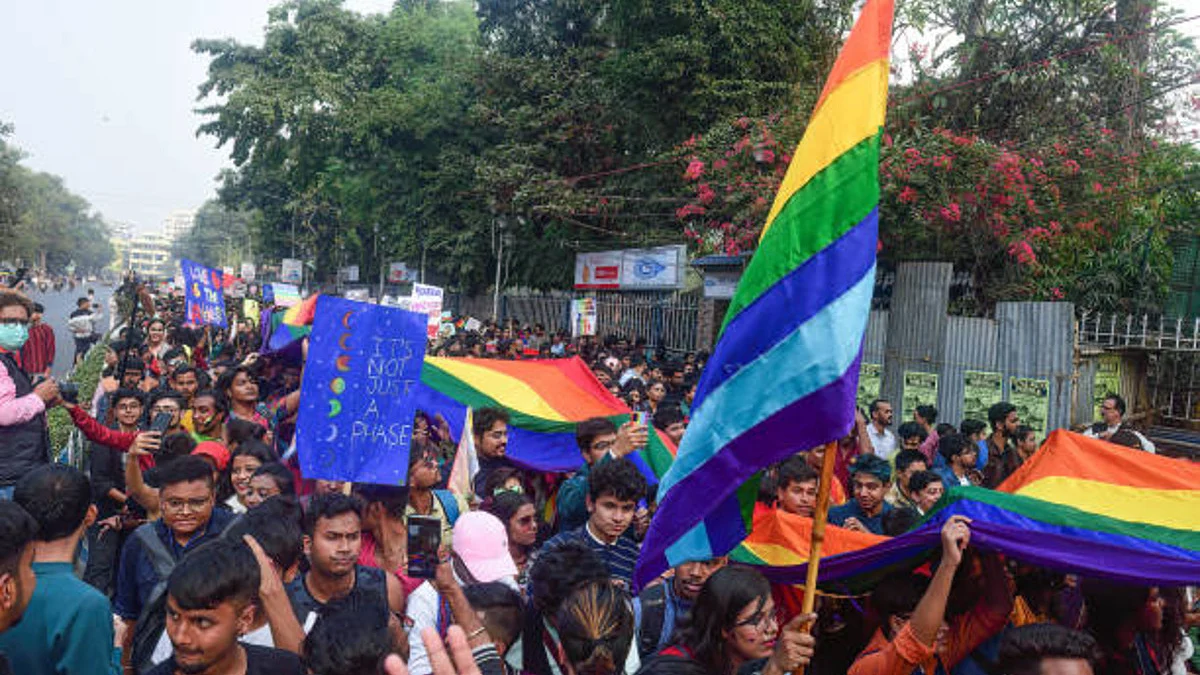Post BJP MPs statements about same-sex marriage, a look at what 2018 verdict means for same-sex relationships
BJP's Sushil Kumar Modi had said in Rajya Sabha on Monday that same-sex marriages should not be legalised and the issue cannot be decided by courts alone

Bharatiya Janata Party (BJP)’s Sushil Kumar Modi had said in Rajya Sabha on Monday that same-sex marriages should not be legalised and the issue cannot be decided by courts alone.
“Two judges cannot sit and take a decision on such social issues. There should rather be a debate in Parliament and society,” said Modi, adding that attempts were being made by “left-liberal democratic people and activists” to legalise same-sex marriages by following the West.
The former deputy CM of Bihar said that marriage was considered sacred in India and was only meant as a “relationship between a biological man and woman”. He claimed during the Zero Hour submission in the Rajya Sabha that same-sex marriages were “against our culture and ethos”, and asked the Union government to strongly present its case in court.
The law ministry has opposed same-sex marriages in the past and said courts should stay away from the law-making process that falls under parliament's purview. The Centre has earlier stated that marriage under the Special Marriage Act, 1954, is only permissible between a biological man and a biological woman.
On November 25, following Public Interest Litigations (PIL) seeking recognition of same-sex marriages under the Special Marriage Act, a Bench headed by Chief Justice DY Chandrachud issued notices to the Attorney General R Venkataramani and the Union government.
Four gay couples have moved the Supreme Court to recognise same-sex marriages, setting the stage for a clash with the BJP-led union government.
Here we try to decode what the 2018 verdict decriminalising same-sex relationships means and what its status is now:
1) What does the 2018 Supreme Court verdict decriminalising same-sex relationships mean?
In 2018, Supreme Court ruled that consensual adult gay sex is not a crime saying sexual orientation is natural and people have no control on it. SC read down the 158-years old colonial Section 377 and allowed gay sex among consenting adults in private.
2) Does this ruling mean people in same-sex relationships can marry?
No. Couples in same-sex relationships are deprived of legal backing for same-sex marriages, a basic right enjoyed by heterosexual couples. Same-sex couples can marry, but they will be treated as roommates under the law.
3) Why is it important to have legal backing for same-sex marriages?
Without legal recognition of being married, couples in same-sex relationships are denied rights such as those linked to medical consent, pensions, adoption or even simpler things like club memberships for couples. Same- sex couples won’t be allowed to make medical decisions on behalf of each other, should one fall seriously ill.
4) What are the arguments in favour of recognising same-sex relationships?
Though Indian laws do not recognise same-sex marriages, the judiciary has recognised live-in relationships. Such recognition rests on liberal interpretation of Indian laws and the Constitution, particularly Article 21 of the Constitution which guarantees the right to life.
Marriages in India fall under the domain of ‘personal laws’ which also govern other personal affairs such as divorce and succession.
5) What do the recent petitions filed in the Supreme Court want?
The petitions filed so far concern the Hindu Marriage Act (HMA), Special Marriage Act (SMA), and Foreign Marriage Act (FMA). The FMA governs marriages of Indians abroad.
It has been pointed out that the Section 5 of the HMA requires “any two Hindus” for a marriage and does not distinguish between heterosexual and homosexual marriages in its wording. The petition in the Supreme Court also notes that the Special Marriage Act (SMA) also does not prohibit same-sex marriages in its wording.
The petition argues that the non-recognition of same-sex marriages is against the 2018 Navtej Singh Johar Vs Union of India Supreme Court judgement that decriminalised homosexuality and the 2017 SC Justice KS Puttaswamy (Retd) Vs Union Of India verdict protecting the right to privacy.
Follow us on: Facebook, Twitter, Google News, Instagram
Join our official telegram channel (@nationalherald) and stay updated with the latest headlines